Gambia set out its genocide case against Myanmar at the UN's International Court of Justice on Tuesday (Dec 10).
Myanmar's leader Aung San Suu Kyi, a Nobel Peace laureate, looked on impassively as the alleged atrocities were detailed at the beginning of three days of hearings in The Hague instituted by Gambia against Buddhist-majority Myanmar in November.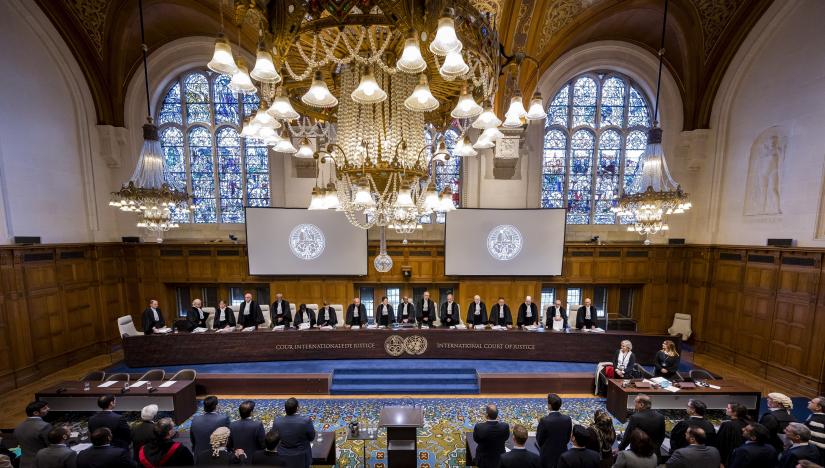 TOP UN COURT
TOP UN COURT
The ICJ, also called the World Court, is the highest United Nations legal body, established in 1945 to deal with disputes between states. It should not be confused with the treaty-based International Criminal Court, also in The Hague, which handles war crimes cases against individuals.
The ICJ's 15-judge panel has historically dealt with border disputes. Increasingly it also hears cases brought by states accusing others of breaking obligations under UN treaties.
This case was brought against Myanmar by the tiny West African nation of Gambia, acting with the support of the 57-member Organization for Islamic Cooperation (OIC), under the 1948 Genocide Convention. Both countries are signatories.
The convention obliges the 150 signatory countries not to commit genocide, but also to prevent and punish genocide. It defines genocide as "acts committed with intent to destroy, in whole or in part, a national, ethnical, racial or religious group."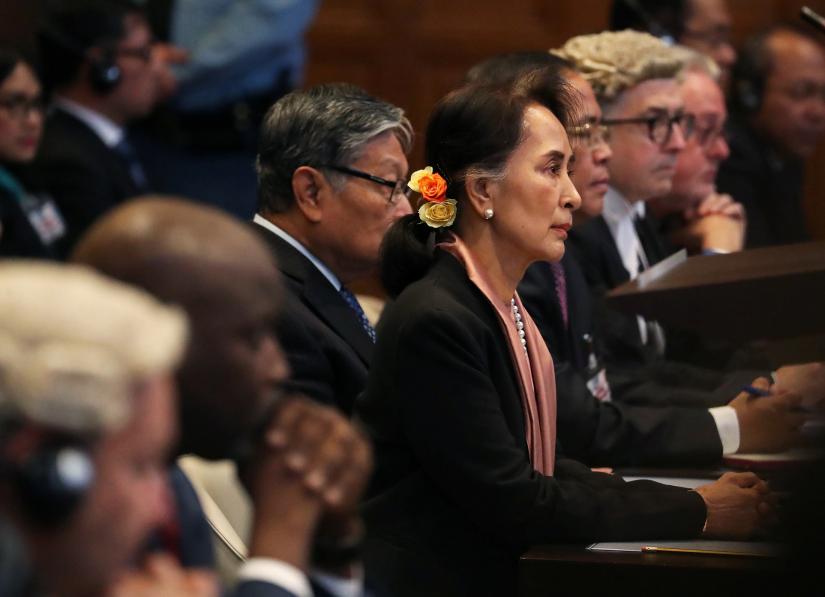 ‘RESTRAINING ORDER’
‘RESTRAINING ORDER’
The hearings at the ICJ will not, at this stage, consider whether Myanmar is guilty of genocide. They will focus on a request for so-called provisional measures against Myanmar, a sort of preliminary injunction seeking to halt any ongoing abuse or violations. The measure is similar to a restraining order, but against a state rather than a person.
Judges at the ICJ often grant such measures, which generally consist of asking a state to refrain from any action that could aggravate the legal dispute.
ICJ cases typically take years to come to a conclusion, but a decision on provisional measures could be made within weeks. Its rulings are final and without appeal, but the court has no way of enforcing them. Still a ruling against Myanmar could hurt its international reputation and set legal precedent.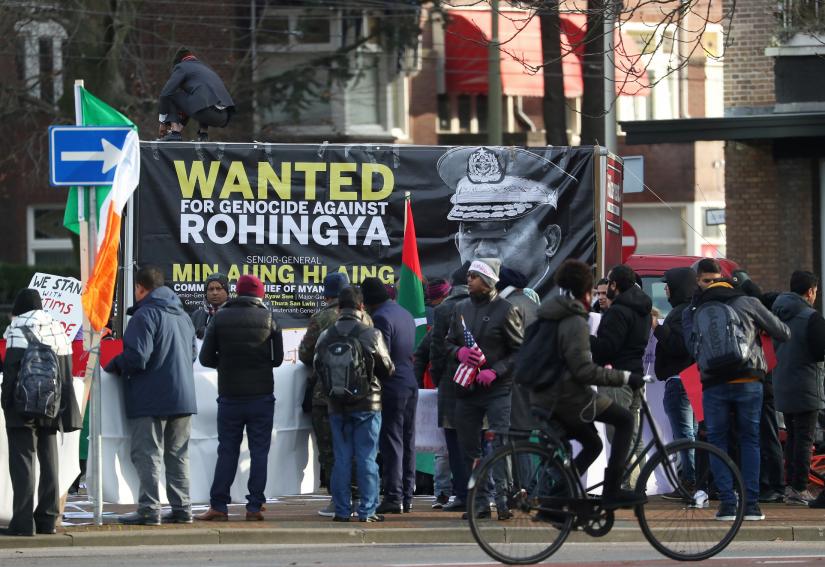 GENOCIDE AT THE ICJ
GENOCIDE AT THE ICJ
The court has handed down a final judgment in one other genocide case in the past, in which Bosnia accused neighbouring Serbia of masterminding genocide of Bosnian Muslims during the 1992-95 war.
In 2007, the ICJ ruled that genocide was committed in Bosnia during the 1995 massacre of some 8,000 Muslim men and boys in Srebrenica. However, the judges said there was not enough evidence that the Serbian government was directly involved in the slaughter. Nonetheless the court found Serbia guilty of violating the convention by failing to prevent genocide.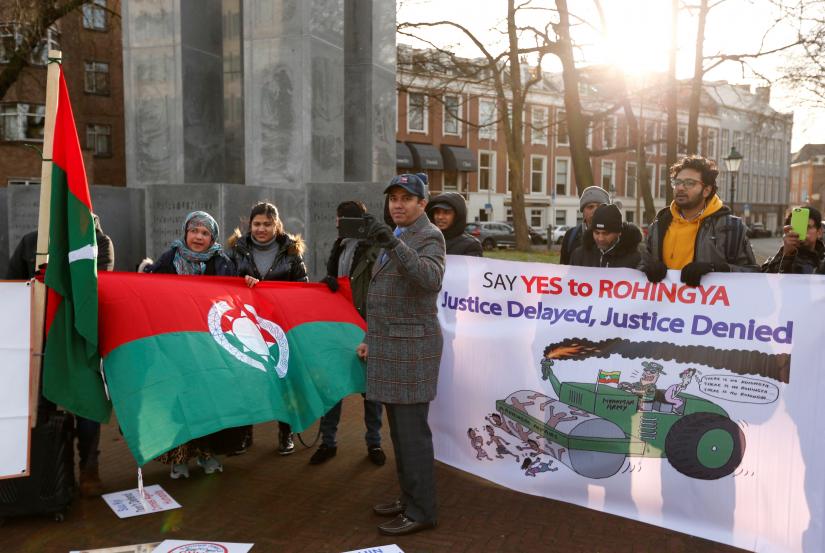
Myanmar faces a series of legal contests globally accusing it of alleged atrocities against Rohingya Muslims during a military-led crackdown two years ago, but there are no legal precedents.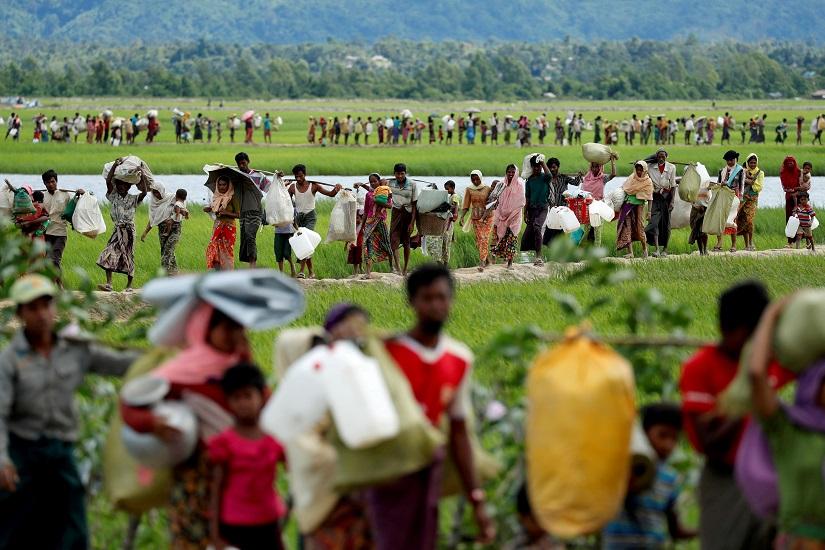 BANGLADESH’S ROLE
BANGLADESH’S ROLE
Bangladesh, who is hosting more than one million Rohingyas, has no role to play in the hearings. But in order to watch the proceedings, a Bangladesh delegation headed by Foreign Secretary Shahidul Haque is in the courtroom.
Bangladesh and some other countries will support The Gambia in fighting the case as there is no scope for any other country to be officially involved.
 National
National
41247 hour(s) 43 minute(s) ago ;
Morning 10:37 ; Tuesday ; Jul 01, 2025
All you need to know on Rohingya genocide hearing
Send
Bangla Tribune Desk
Published : 02:00, Dec 11, 2019 | Updated : 02:00, Dec 11, 2019
Published : 02:00, Dec 11, 2019 | Updated : 02:00, Dec 11, 2019
0 ...0 ...
/hb/
Topics: Top Stories
- KOICA donates medical supplies to BSMMU
- 5 more flights to take back British nationals to London
- Covid19: Rajarbagh, Mohammadpur worst affected
- Momen joins UN solidarity song over COVID-19 combat
- Covid-19: OIC to hold special meeting
- WFP begins food distribution in Cox’s Bazar
- WFP begins food distribution in Cox’s Bazar
- 290 return home to Australia
- Third charter flight for US citizens to return home
- Dhaka proposes to postpone D8 Summit
Unauthorized use of news, image, information, etc published by Bangla Tribune is punishable by copyright law. Appropriate legal steps will be taken by the management against any person or body that infringes those laws.
Bangla Tribune is one of the most revered online newspapers in Bangladesh, due to its reputation of neutral coverage and incisive analysis.
F R Tower, 8/C Panthapath, Shukrabad, Dhaka-1207 | Phone: 58151324; 58151326, Fax: 58151329 | Mob: 01730794527, 01730794528


